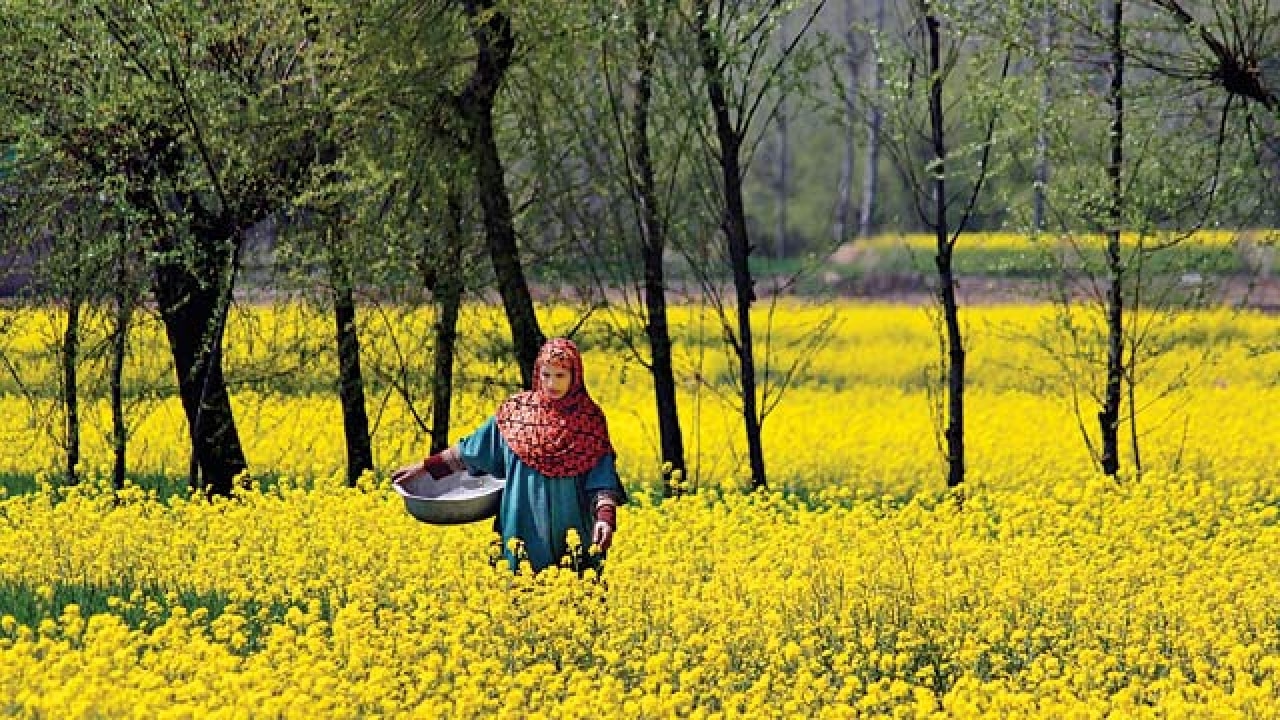
Do I close this little door kind of thing? I asked the young rickshaw driver who could very well be cast in a Hollywood movie as an European expat finding his way in Manhattan. He had blonde hair with a tinge of burgundy, and hazel eyes. A smirk on his face, which I saw from behind, reflected on the right side mirror of the auto-rickshaw as he quipped, “Madam yeh safety hota hai”.
My tryst with Kashmir began at that moment, and it still continues.
The rickshaw, meanwhile, had reached Alamgiri Bazaar in downtown Srinagar through the narrow lanes with houses leaning on each other, and exquisite wooden windows, hinges of which were falling apart. I looked around and there was no franticness. The locality was a small bazaar selling essentials, and people went about their daily errands. The smell of freshly baked bread filled the air.
Later, while filming, and even later while co-authoring Alluring Kashmir: The Inner Spirit in the last four years with Irfan Nabi — co-author of the travel photo book — I learnt the backstory of freshly baked bread called choe’t. I also learnt that Kashmiris love their doen chetun, or walnut chutney and quince apples, unique to the region, along with vivid details of a social fabric that believes in caring for their friends and visitors.
Shabir, the master craftsman of pashmina, was waiting for me outside his ancestral home in a lane close to where I had got off from the rickshaw. It was for the first time I had met a third-generation President Award-winning Kashmiri pashmina embroiderer.
“My first professional 10-day trip went by in a jiffy. When I returned, a few apparent things, and moments, got imprinted on my mind. Like the first feel of soft pashmina wool, the coffee in an old café that used drinking chocolate powder as its only garnishing, and the unforgettable softness of the autumn light that seemed unreal, textured and mellow of which I had no earlier recall other than in the novels of Franz Kafka. I settled back into my daily life, but Kashmir had created a pull in me. I knew I would go back.
Kashmir revealed itself to me slowly, it made me understand that it is an intriguing, complex, warm and beautiful living concept. It conveyed to me the signal of its layered existence, which needed one to embark on a journey of a lifetime to explore.
Everlasting memories and experiences kept punctuating my thoughts. I remember crossing an old ramshackle wooden bridge that allowed only two people at one go, with no side rails for support. This was in a village called Kralpora while I was on the lookout for a carpet weaver, who I still haven’t met after repeated visits. My memories of Mehtaba Begum of Kanihama, who farmed mustard and collard greens on her own small plot, remain as a bright spark. Mehtaba, who was 73 years old at the time, left me awestruck with her sheer courage to tackle life. These moments are real for me, and they form part of the special relationship I share with the Valley.
Kashmiriyat — the ethos that holds the social fabric of Kashmir together — is well-defined in canonical knowledge. But for me, it represents the nuanced life of care, warmth and peace that the Kashmiris love. In hindsight, I think it’s human experiences in the Valley, and not necessarily its famed landscapes, that I hold close to my heart. The energy of feeding pigeons in the morning, the soft warm bread that you can feast on after it comes out of the tandoor, the care with which the saffron-infused kahwa is made and friends who never hesitate to invite you for a baeta or a rice meal are the everyday moments that my memories are made of.
Biswas, a filmmaker and writer, has co-authored the book Alluring Kashmir: The Inner Spirit with Irfan Nabi, a photographer and writer